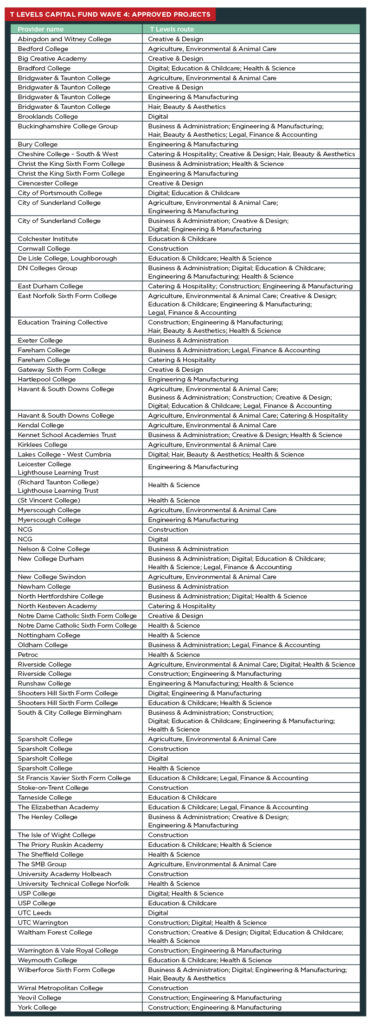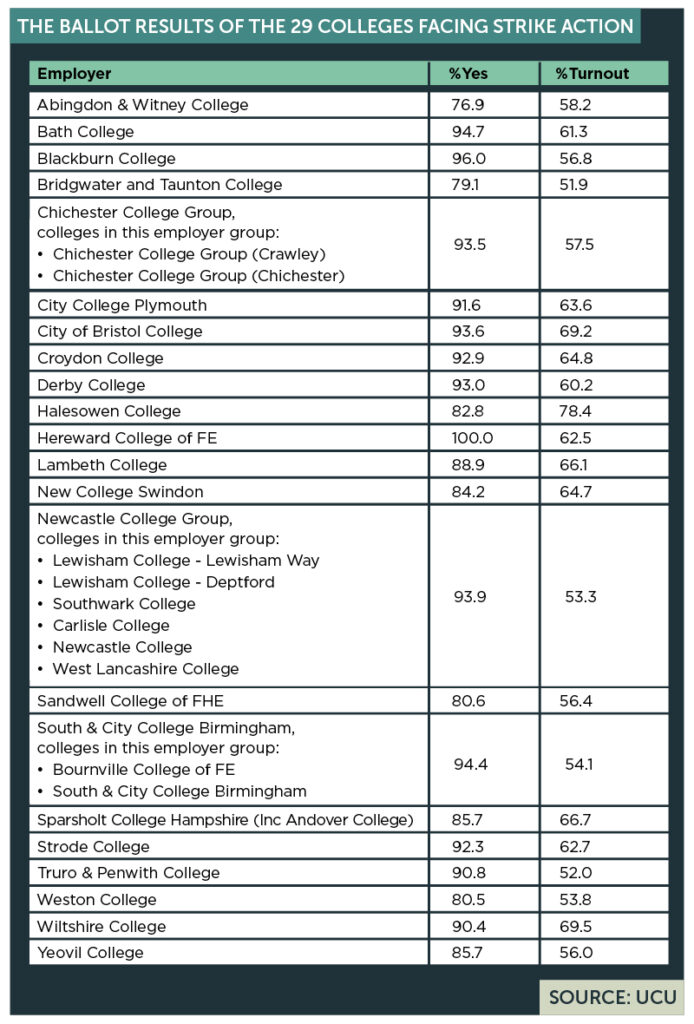Are ministers clear on the difference between technical and applied general qualifications? asks James Kewin
It was fantastic to see so many MPs at last night’s parliamentary debate on the future of BTEC qualifications.
The debate was triggered after the #ProtectStudentChoice petition secured 108,349 signatures earlier this year.
Despite the intense heat and political drama elsewhere in Westminster, MPs from all parties made a compelling case for the government to rethink its plan to scrap the majority of applied general qualifications such as BTECs.
This cross-party support for the campaign from politicians (which we’ve previously seen reflected in the letter from 118 parliamentarians to former education secretary Nadhim Zahawi) has been matched by cross-sector support from the education world and beyond.
Organisations representing staff, students and leaders from schools, colleges, and universities are among the 30 partners backing the campaign, alongside employer groups, and of course, FE Week.
One reason that #ProtectStudentChoice has secured such widespread support, is that it has adopted an evidence-based and reasonable position on the government’s plan to reform Level 3 qualifications.
Fundamentally, we believe that many young people will be better served studying an applied general qualification rather than an A level or T level-only study programme.
T levels are a welcome development and will strengthen the current suite of technical qualifications, but they should sit alongside, rather than replace, BTECs.
Sadly, the new minister’s response to the excellent points put forward by MPs last night was neither evidence-based, nor reasonable.
Although Andrea Jenkyns has only been in the job for a week, she does have the advantage of being a former BTEC student and has talked in the past about the transformative effect this qualification has had on her career.
So it was particularly disappointing to hear her trot out the usual tired and discredited ‘lines to take’ last night.
MPs are often bemused to find that when they ask questions about applied general qualifications, ministers invariably provide answers about technical qualifications.
MPs are often bemused to find that when they ask questions about applied general qualifications, ministers invariably provide answers about technical qualifications
It is hard to say whether ministers do not know the difference, or are simply wishing away BTECs because they are not one of the two qualifications of choice that the government wants to see dominate the future qualification landscape.
Last night’s debate was triggered by concerns about the government plans to scrap the majority of BTECs.
Responding to these concerns by simply restating the same plans and talking up T Levels is a bizarre approach, but one that has been adopted by a succession of skills ministers.
With a new prime minister in place by 5 September, and new set of ministers to follow shortly after, the government has a chance to reset its damaging plans for level 3 qualifications.
Former Conservative ministers used last night’s debate to urge a rethink, in part because the government’s plans are so curiously un-Conservative.
They reduce ‘consumer’ choice, scrap a successful ‘product’, and replacing it with a state-backed alternative with no track record.
You can imagine the response if this sort of plan was put forward by one of the opposition parties in any other sphere of public life.
So what needs to change?
First, a new government must get the basics right.
Three routes are better than two.
Students need genuine choice, not A levels, T levels and a small group of applied general qualifications that are approved by exception.
And understand that a T level is not simply an upgraded BTEC – in most cases, they are a different type of qualification that provide a different type of educational experience.
Acknowledging this would help to address the misplaced focus on ‘overlapping’ qualifications.
Second, end the obsession with boosting T level numbers.
The Department for Education has become so focused on this output that it has lost sight of the much more important outcome (ensuring all students are pursuing relevant, high quality qualifications that lead to further study and/or skilled employment).
Unless there are radical changes to the make-up of T levels, they will remain a minority product.
Scrapping most BTECs to make T levels a mass-market product is a desperate move and one that is unlikely to succeed – we are much more likely to see an increase in A level or NEET numbers instead.
Third, listen to, and engage with, the sector.
Last night, the minister claimed to be “consulting vigorously” on next steps.
But there is little point in consulting if you ignore what people – particularly those responsible for delivery – actually tell you.
That has certainly been the sector’s experience to date – it is hard to recall a more top-down, ‘government knows best’ approach to policymaking in the past ten years.
The 12-month delay to defunding is welcome, but delaying a bad idea does not stop it from being a bad idea.
Education policymaking should start with the student and work backwards.
A new administration has the opportunity to do that, and recalibrate the current approach to reforming qualifications at Level 3 and below.
The 30 members of the #ProtectStudentChoice coalition stand ready to help, as is the broad, cross-party group of MPs that made such a valuable contribution to last night’s debate.


